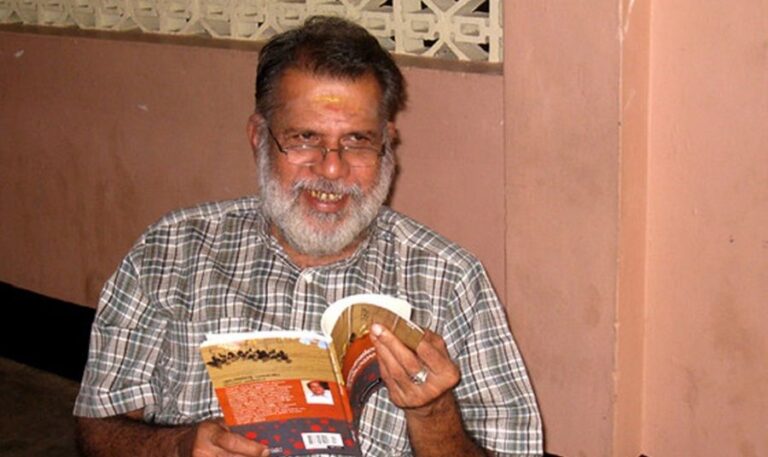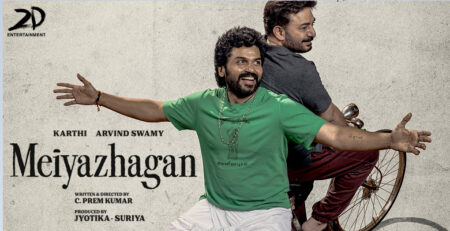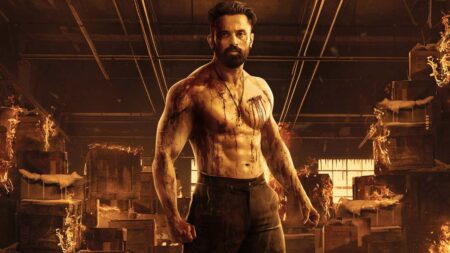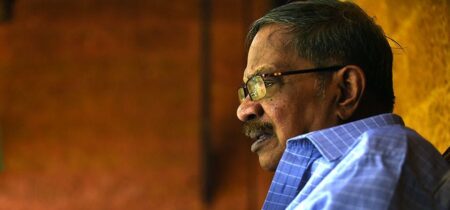Covid has claimed one more precious life – Madampu Kunjukuttan.
It is with a heavy heart that I pen these words, for we were very close friends since long. We had shared the stage on numerous occasions as speakers in many places. He was very fond of me and used to explain about my betel-chewing style to those around. My last visit to his home was when he had bagged the national award for the best screenplay for Karunam directed by Jayaraj. Perhaps that was a rare occasion when our discussions veered around cinema.
I remember his observation, “Cinema may be a work of art; but to compare it to a literary exercise is nothing short of foolhardiness.”. Of course with the rich and varied experience spanning four decades to his credit, Madampu had every authority to say so. For, the prodigious output during this period stands testimony to his profound originality as a writer, an acclaimed authority on the esoteric culture of Kerala, a close observer of people and events and a staunch social critic.
Born in the lineage of ancestors known for their irrefutable knowledge of Vedas, Puranas and Sastras, Madampu never had to go for any formal education. He always attributed his knowledge of Sanskrit and English to the rigorous schooling in the gurukula under Swamy Gjanananda Saraswathy. Swamiji – Parameswaran Unnithan during his poorvasrama days – had stayed at Madampu mana for long. Madampu used to say, “absence of formal education and a strong footing in these disciplines made me totally a self-made man in every sphere of my life”.
Prolific writer, versatile actor
His numerous works apart, Aswathamaavu and Brushtu made Madampu a celebrity in the Malayalam literary horizon. As for Aswathamaavu, it was written during his days in Kodungallur where he had worked as a teacher in Samskrita Vidya Peedhom managed by the royal family. Noted for its unique, lucid style of narration, the novel captured the gradual degeneration of a young Namboodiri teacher, highly qualified and also born and brought up in one of the famous ancestral illams.
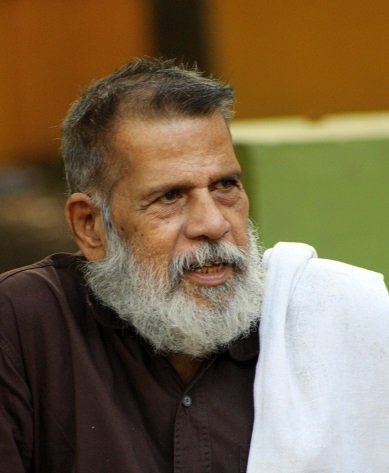
Many people took it as a reinterpretation of the Puranic character, but it was only on the progressive decline of the hero that had compelled him to choose the title. Interestingly, the novel led to Madampu’s foray into the filmdom, that too in two roles. While the film directed by K R Mohan had its dialogue and half-the script written by the author, it was a mere chance that he had to don the role of the hero as well. Actor Sukumaran who was to portray the hero failed to turn up after a few shots. Mohan, after waiting for three days finally asked the novelist to take the role! And the rest is history. A great success, Aswathamaavu shared the State award in 1980 along with one of M T Vasudevan Nair’s films.
Inspiration for Brushtu was Smartha Vicharam, a cruel practice of yore of punishing a Namboodiri woman and the men with whom she had illicit relation. The trial headed by a high priest gets the names from the accused woman and then the men are summarily excommunicated. Interestingly, Madampu’s grandfather was one such priest and strangely enough, he had to excommunicate two of his younger brothers after the first trial. The brothers were Vedic and Sanskrit scholars too. This kindled his imagination and provided enough grist for the classic novel.
The novel was made a film by a director whom Madampu would describe as “the only drop-out from the Pune film Institute”. Unable to imbibe the spirit of the novel, the director christened the film as 64 Raathrikal, thereby misreading the whole text. Madampu was compelled to resort to legal redress for the damage.
Admirer of Buddha
Madampu was an ardent admirer of Buddha and his teachings. This is reflected in his work Mahaaprasthananm that fetched the Sahithya Akademi award. Writing of the book whetted his appetite for Buddha and Buddhism. It finally took him to Dalai Lama whom he met for three days in succession. The Tibetan Tantric Vidya with which he had a close encounter has had considerable influence on his life ever since. In fact the book Amurthasya Putrah is a striking paradigm.
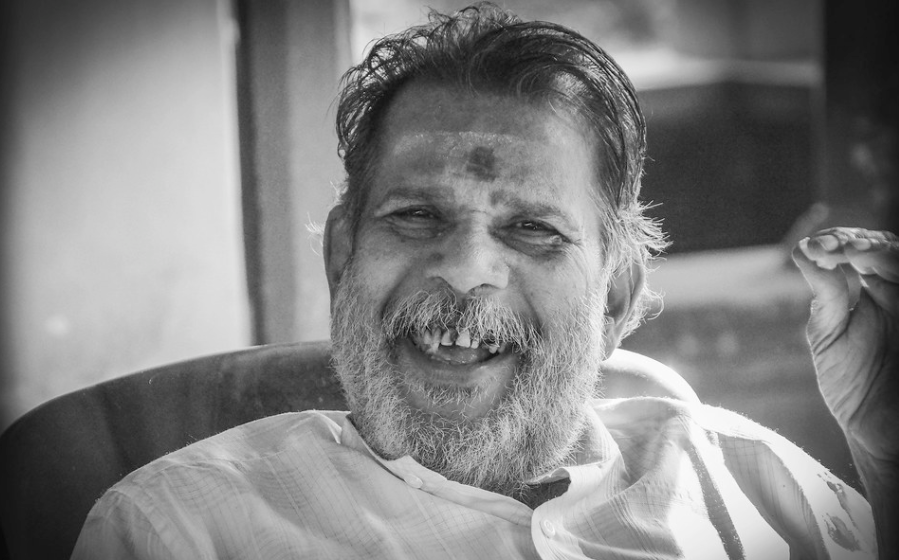
Madampu’s active involvement in the filmdom happened in the 1990s when he was associated with Jayaraj in Paithrukam. Before Desadanam and Karunam were released, Madampu had already become a busy actor by appearing in Purushardham, Agnisakshi and Aaraam Thampuraan, apart from the films for which he had written the scripts. His one-man show in the Diploma film of M R Rajan of Asianet, was also laudable.
Madampu believed that a story as a whole was not that indispensible for a film. Just an anecdote or even a news story in the media would suffice. As for Karunam, it clicked because of the contemporaneity of the subject. Moreover the narration was simple and direct, easy for anyone to follow.
A man with a vision
Madampu never minced his words against the unsavoury practices in the filmdom. “The craze for commercial cinema is a fallout of astronomical budgets”, he used to say. The emphasis will naturally be on entertainment only and naturally all the concomitant sleazy parameters would follow. A strong tendency to over-crowd each frame was a sequel to this. You could convey a message more effectively and thereby educate the society only with a low-budget film for which Karunam was the best example. The film could also disprove the inevitability of top artists for success. He underscored the need for more mini theatres preferably in all towns where such films could be screened.
According to him, the concept of a producer in the Indian film industry is different from that in the West. In the West, it is a vital and creative post in the hierarchy for which training is essential on the lines of a director or a cinematographer. Here the producer is ignorant of the art and therefore is exploited by the rest.
Notwithstanding the success of many of his films, Madampu believed that Malayalam films were yet to get over the hangover of theatre. There is stylisation in acting and dialogue delivery and the roles are typecast. But regrettably, for the majority in the industry, the present style is perfect!

